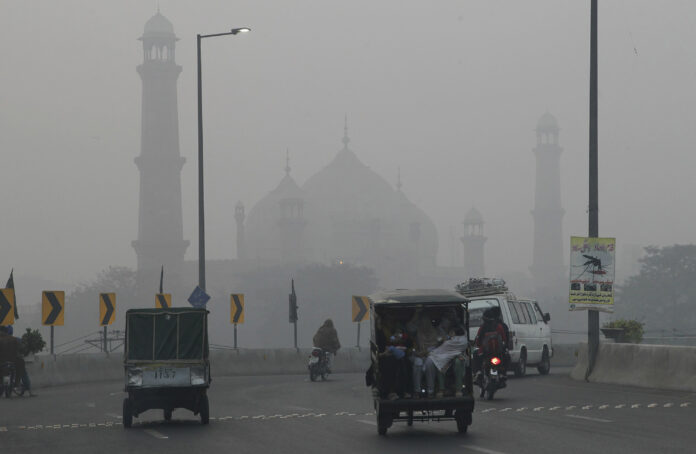As Lahore grapples with some of the world’s worst air pollution, the city’s air quality index (AQI) soared to an unprecedented 707, far surpassing safe levels.
The smog is not only endangering public health but is exerting a heavy toll on Pakistan’s economy, highlighting the urgency for long-term sustainable solutions.
The severe pollution impacts the education sector as schools delay start times, affecting children’s academic performance. Office attendance is declining as employees reach work late or face respiratory issues, which reduces productivity across sectors.
Lahore’s healthcare costs are surging, as respiratory and cardiovascular ailments linked to smog demand increased medical attention, creating a substantial burden on the healthcare system.
Agriculture, a cornerstone of Pakistan’s economy, is also suffering as smog disrupts photosynthesis in crops, diminishing yield and risking food security.
The smog further complicates transport operations, delaying flights and slowing down road traffic, causing logistical disruptions and additional costs for businesses.
Industrial activity, particularly in areas reliant on coal and fossil fuels, contributes significantly to the pollution, worsening the AQI and further stressing Lahore’s environment.
Studies indicate that Lahore’s pollution could reduce life expectancy by up to seven years, underscoring the need for urgent action.
In response to these dire conditions, the government has implemented short-term measures, including fines for polluting vehicles and industrial shutdowns, but long-term strategies are necessary.
Sustainable solutions such as advancing public transportation, regulating industrial emissions, and enforcing cleaner fuel standards are critical to reversing this crisis.
The economic impact is clear: Lahore’s smog crisis is affecting every aspect of life, from productivity and healthcare costs to agriculture and transport efficiency. Addressing the smog issue will require a blend of immediate interventions and substantial structural changes to restore economic stability and protect public health.




